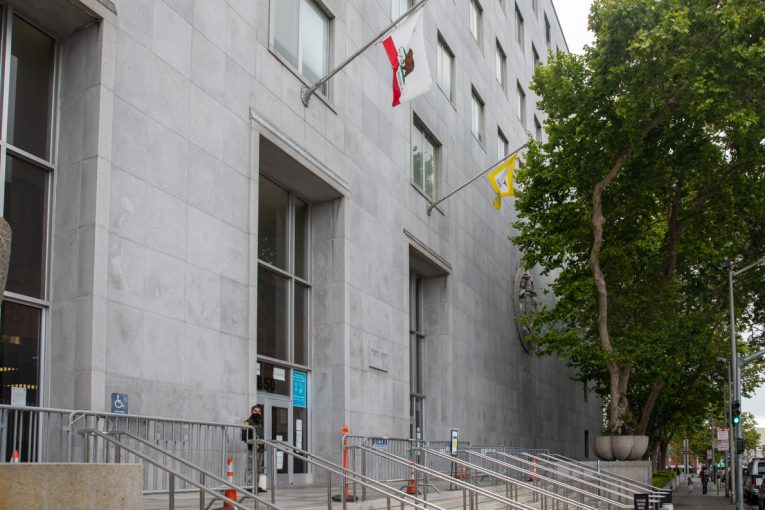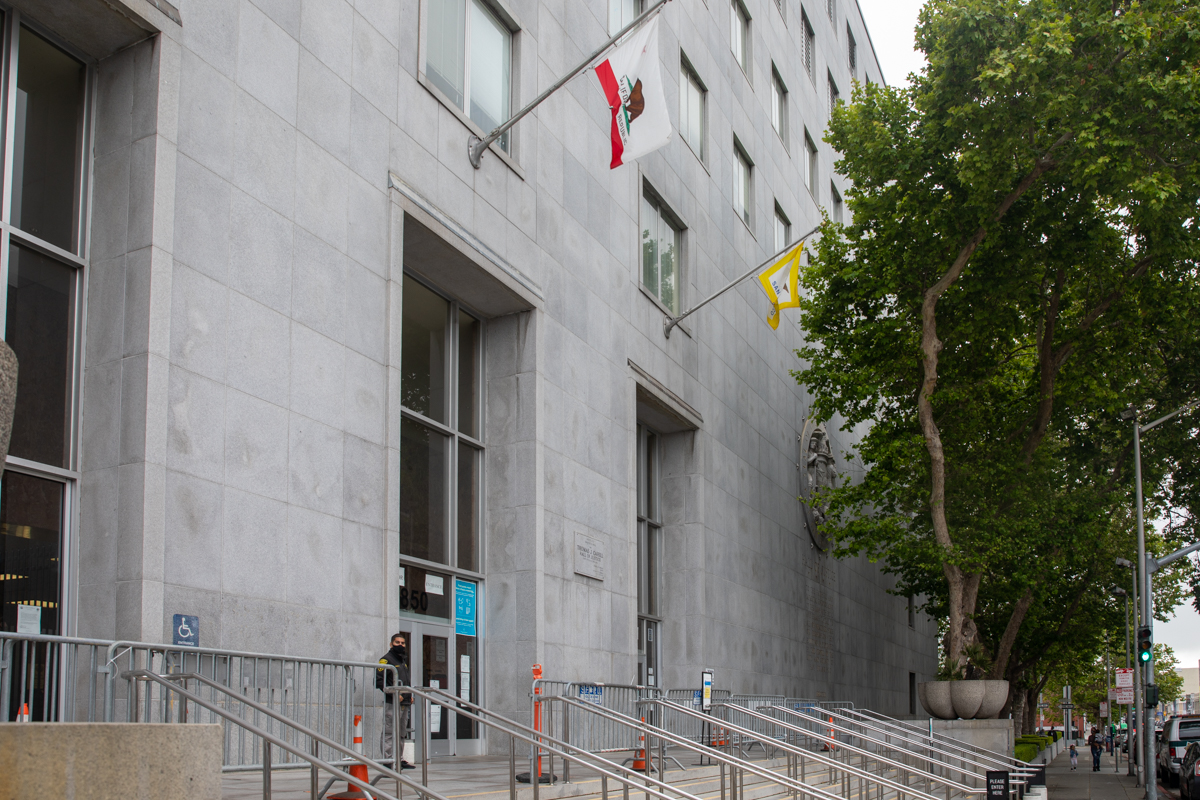

By David M. Greenwald
Executive Editor
San Francisco, CA – Judge Victor Hwang summarily denied a defense motion by Public Defender Nuha Abusamra to dismiss charges against Richard Everett, despite the fact that Everett remains hospitalized in critical condition after being shot multiple times in the chest by police officers.
Everett, 54, is an unhoused resident of the Tenderloin.
In court on Wednesday, Abusamra told the judge that Everett received conflicting commands at some point telling him to drop the knife and at others telling him he could hold onto it.
“It’s a miracle he’s alive,” she said, telling the judge it’s unlikely that he’ll be able to use his right hand again.
Judge Hwang denied the motion without prejudice and set a preliminary hearing for September 27 in Department 11. Everett is facing charges of resisting arrest and  possession of the knife.
possession of the knife.
In a phone interview with the Vanguard, Abusamra explained that the police received a call about a man in the Tenderloin who was in possession of a knife.
“Mr. Everett was, in fact in what I would describe as a crisis situation,” she said. “The officers themselves stated that they wanted to take him to a hospital, not a jail, a hospital. And they spoke to one of his friends and his friend tried to speak with Mr. Everett.”
One of Everett’s friends described his condition as “a little bit loosey goosey.”
During the hearing, Abusamra alleged the police failed to deescalate situation and they gave contradictory commands.
“Conflicting commands and commands that were confusing also, when officers are saying we want to help you, but you can see on the body-worn camera multiple literally holding shotguns towards Mr. Everett, pointing at his face, that’s clearly not going to help him feel in any way safe or in no way does that deescalate the situation,” she explained.
In addition, she said that the body worn camera footage, showed at a Townhall Meeting last week, shows clearly that Everett never advanced towards the police, but instead “tried to slowly walk away, not towards the officers, away on the sidewalk.”
The police at this point opened fire with both lethal and non-lethal weapons.
“It was almost simultaneous,” she described. “I’m pretty sure in the town hall they also described that they said first we fired the beanbag and then two officers opened fire with their firearms. But if you see the video, you can see how fast all of that happened. So it didn’t appear like there was any real time lapse between beanbag rounds and I guess whatever you’d call live (ammunition).”
The footage does not show Everett either lunging toward or advancing toward the officers when he is shot.
“They closed the block, they encircled him, they’re on the street, he’s on the sidewalk,” she describes. “After 15 minutes of a back and forth, he picks up the stuff … the milk crate in one hand, a duffle bag in the other, and he’s walking away on the sidewalk.”
At this point, he’s encircled by the police. He’s 10 to 20 feet away when the shooting begins.
The conflicting commands only added to the confusion.
“They were trying to say, put down the knife, we need to talk to you,. We want to get you help, but you got to put down the knife,” she explained. But then she explained, “They’re like, it’s okay if we take you to the hospital you can keep your knife.”
She added, “It was very clearly confusing.”
She said, “I really think that’s a really important part of the story is the conflicting information and the part where the officer says you can keep the knife. I mean that is said multiple times, you can keep the knife. We just want to help you hear that over and over again. We want to take you to the hospital.”
Valerie Ibarra, the public information officer for the San Francisco Public Defender’s office noted that, in San Francisco, there have been many pushes for police reform and transparency.
“One of those outcomes is that the police have to hold a town hall whenever there is what they call an officer involved shooting,” Ibarra explained. “It gives people, the public, an opportunity to review the footage that they’re showing and sharing with the public, because otherwise you would just have to believe what’s in police reports. And we know that police reports are often inaccurate, and that’s why people deserve a defense in court.”

